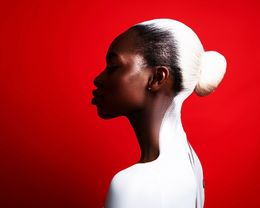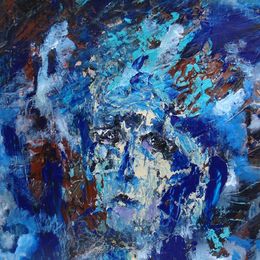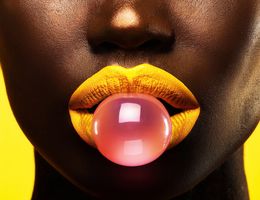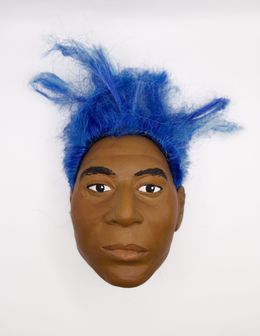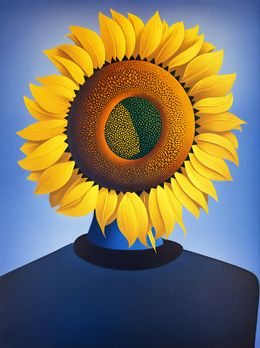
Colored artworks
The work of color is central in any artistic work. It is even one of the first tools of the artist. It is difficult to imagine a work that would exist without the working of color - even if it is the absence of color that the artist chooses to present.
Through the ages and artistic movements, the use and meaning attributed to color evolves, but the essence of color remains the same. Every artist must master the properties of color in order to control his composition. In the restoration of paintings, color even becomes a science, because it is necessary to know the different molecules to find the colors and mixtures originally used by the artist.
In the history of art, the importance of color fluctuates according to periods and geographical areas. During the Italian Renaissance, for example, there was a debate (called Paragone) between the authority of color versus drawing: according to the schools, it is the color, and not the line, that creates the emotion and visual power of a work of art. The colors thus take on an immense importance, and assume certain meanings: white symbolizes purity for example, and blue (systematically used to clothe the Virgin Mary) is associated with divinity. These symbols are not thought of randomly: the purple for example, is used since the Byzantine era to signify the highest rank of royalty. Unlike ochre, the purple pigment came from a specific shell, and was extremely difficult - and therefore rare, and expensive - to obtain.
More generally, colors can be divided into three categories: warm, cool, and neutral. As their name implies, these classes of colors give off an atmosphere that the painter can use to influence the emotion of his work. Baroque art, for example, manipulates the contrasts between warm and cold colors to capture the power of bodies. The play of light is exalted by the effects of color. For a long time, the traditional Western school of painting required painters to reproduce the colors of the environment around them. It was the Impressionists, in the 19th century, who explored other ways of seeing - and therefore of transcribing on canvas - their chromatic environment. By avoiding complex mixtures and painting spontaneously, in the open air, the Impressionists reinvented the use of color to reproduce reality.
It was not until abstract and subjective painting that art devoted itself to color as a subject. Mark Rothko, precursor of the Colorfield Painting movement and of abstract expressionism, sees in his paintings a living organism whose color is human and whose format is transcendent. Piet Mondrian, on the other hand, sought in his paintings to approach the very essence of nature through the purity of primary colors, to achieve abstraction. The founder of the Russian avant-garde movement of Suprematism, Kasimir Malevich, will disturb the senses of everyone with his work "White square on white background", in which the color is painted only for itself. Contemporary art, photography, collage, or pop art also use in their respective ways the resources of color, exploring indefinitely all its pluralities. As Picasso said, "When I have no blue, I use red."
Artsper writes art in color: discover below a great selection of works that honor color and its properties. What better way to brighten up an interior?
Save your search and find it in your favorites
Save your search to find it quickly
Saved search
Your search is accessible from the favorites tab > My favorite searches
Unsaved search
A problem occurred

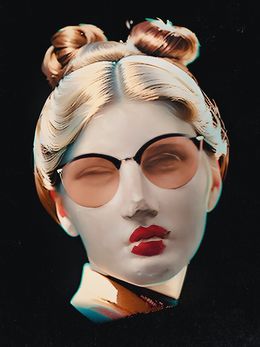
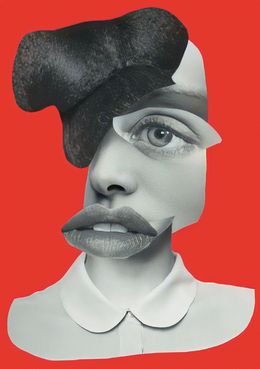
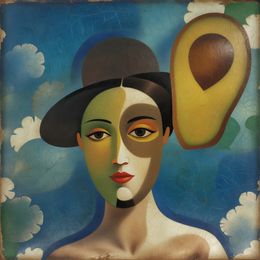
Guardian of the Seed
Sephora Venites
Print - 101.6 x 101.6 x 0.3 cm Print - 40 x 40 x 0.1 inch
$2,917
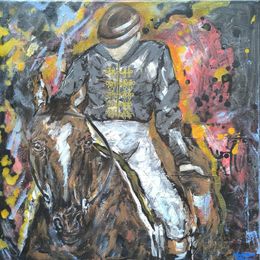
Blessed by the crowd - Al shaqab
Kalh Art Kalley
Painting - 50 x 50 x 2 cm Painting - 19.7 x 19.7 x 0.8 inch
$691
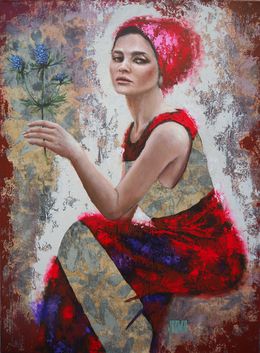
Jeune femme au chardon
Sylvie Julkowski-Egard
Painting - 73 x 54 x 2 cm Painting - 28.7 x 21.3 x 0.8 inch
$1,131
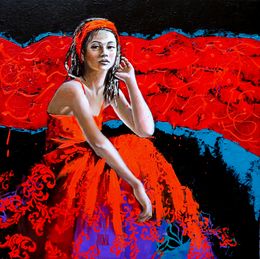

Café Monceau
Sylvie Julkowski-Egard
Painting - 92 x 73 x 2 cm Painting - 36.2 x 28.7 x 0.8 inch
$1,786

Dancing with the wind
Hani Badawi Leo
Painting - 98 x 148 x 3 cm Painting - 38.6 x 58.3 x 1.2 inch
$3,333 $2,667

Réminiscence
Sylvie Julkowski-Egard
Painting - 92 x 73 x 2 cm Painting - 36.2 x 28.7 x 0.8 inch
$1,786

Comme un parfum d'été
Sylvie Julkowski-Egard
Painting - 92 x 73 x 2 cm Painting - 36.2 x 28.7 x 0.8 inch
$1,786
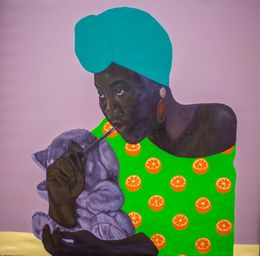
Looking Forward
Babatunde Adeogun
Painting - 121.9 x 121.9 x 2.5 cm Painting - 48 x 48 x 1 inch
$2,850
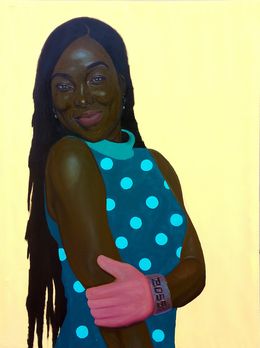
Boss Madam
Babatunde Adeogun
Painting - 120.7 x 90.2 x 2.5 cm Painting - 47.5 x 35.5 x 1 inch
$2,850

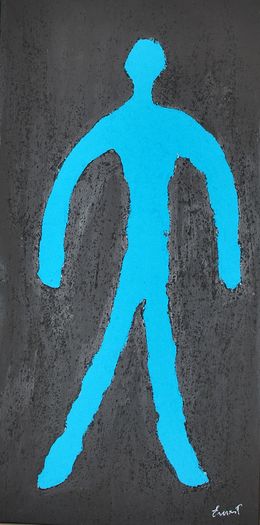
Reclamo a azul
Ernest Carneado Ferreri
Painting - 80 x 40 x 4 cm Painting - 31.5 x 15.7 x 1.6 inch
$2,619
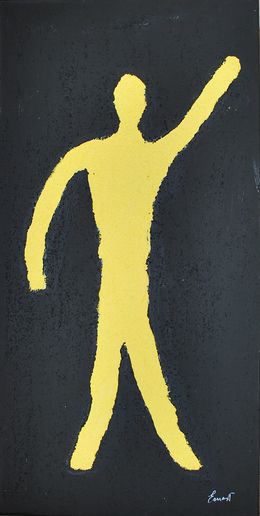
Reclamo a marillo
Ernest Carneado Ferreri
Painting - 80 x 40 x 4 cm Painting - 31.5 x 15.7 x 1.6 inch
$2,619
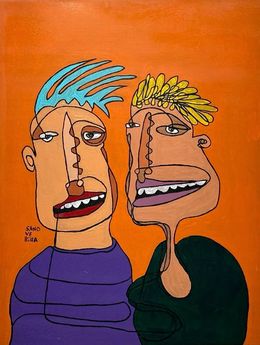
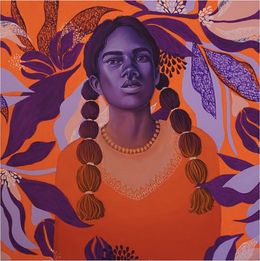
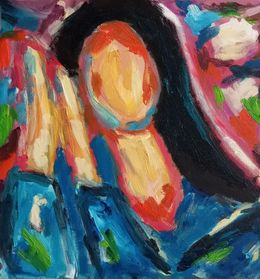

Freddie Mercury 2
Iryna Kastsova
Painting - 130 x 90 x 2 cm Painting - 51.2 x 35.4 x 0.8 inch
$5,774
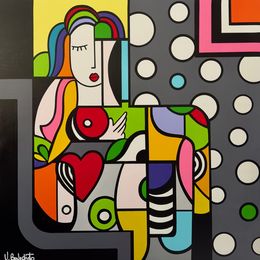


Joyeux musiciens
Joseph Piermatteo
Painting - 73 x 92 x 3 cm Painting - 28.7 x 36.2 x 1.2 inch
$2,976
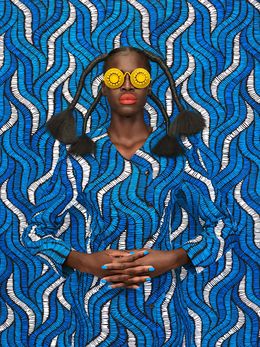
Mama Master Chef
Thandiwe Muriu
Photography - 90 x 60 x 0.1 cm Photography - 35.4 x 23.6 x 0 inch
$14,286

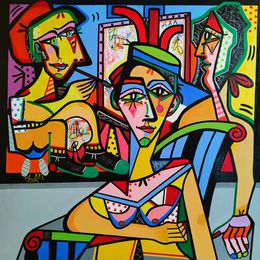
La collectionneuse au fauteuil bleu
Zafi
Painting - 100 x 100 x 3 cm Painting - 39.4 x 39.4 x 1.2 inch
$9,524

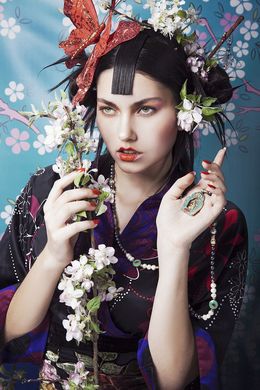
Asian girl - Collection Wanderlust
Mathilde Oscar
Photography - 90 x 60 cm Photography - 35.4 x 23.6 inch
$1,786
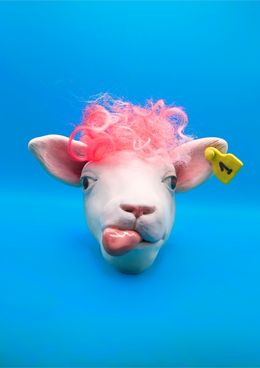
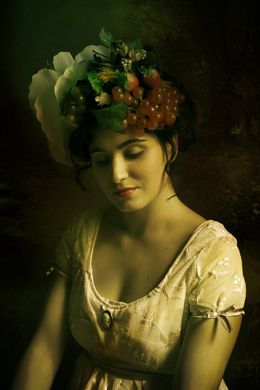
The lady with fruit on the head
Viet Ha Tran
Photography - 90 x 60 x 0.1 cm Photography - 35.4 x 23.6 x 0 inch
$3,929
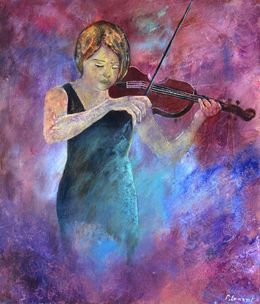
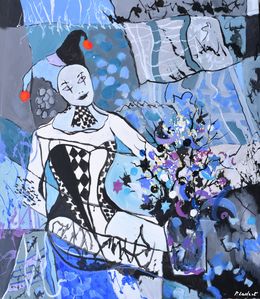


In the stillness of dawn
Plamen Ovcharov
Painting - 65 x 85 x 2 cm Painting - 25.6 x 33.5 x 0.8 inch
$810


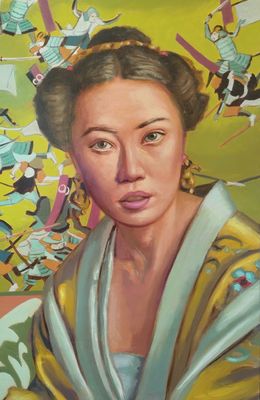
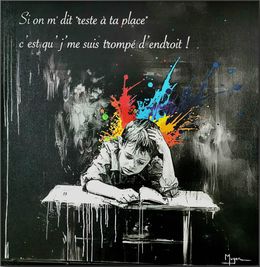
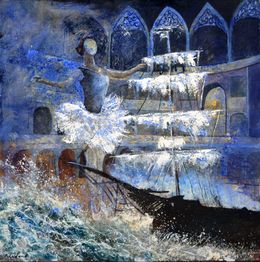
The flying Dutchman opera
Pol Ledent
Painting - 80 x 80 x 2 cm Painting - 31.5 x 31.5 x 0.8 inch
$1,429
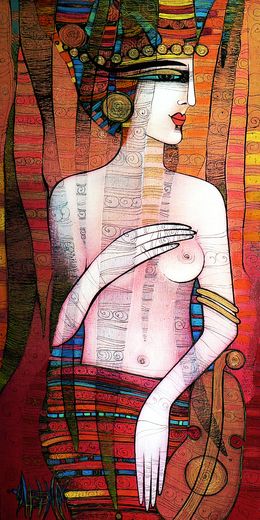
Le temps qui passe...
Albena Vatcheva
Painting - 80 x 40 x 4 cm Painting - 31.5 x 15.7 x 1.6 inch
$1,964
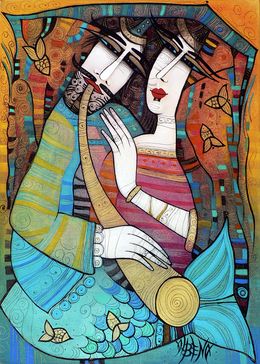
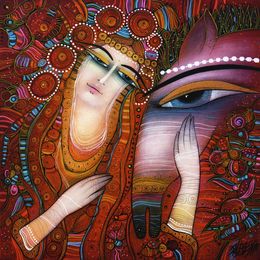

Lab Closed. Creation in Progress
Thandiwe Muriu
Photography - 150 x 100 x 0.1 cm Photography - 59.1 x 39.4 x 0 inch
$20,239
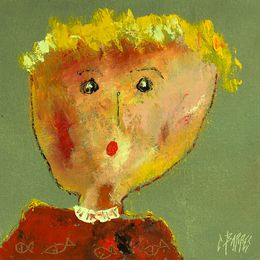

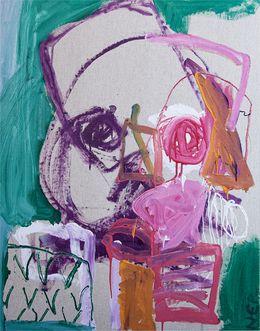
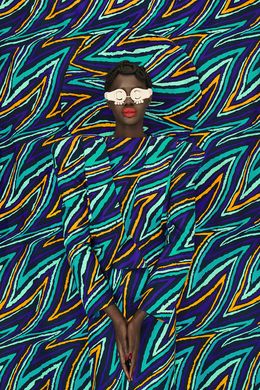
Pearls Of The Ocean
Thandiwe Muriu
Photography - 90 x 60 x 0.5 cm Photography - 35.4 x 23.6 x 0.2 inch
$8,334

A Love Letter To Myself
Thandiwe Muriu
Photography - 90 x 60 x 0.5 cm Photography - 35.4 x 23.6 x 0.2 inch
$14,286

Circles Of Love
Thandiwe Muriu
Photography - 90 x 60 x 0.1 cm Photography - 35.4 x 23.6 x 0 inch
$11,905
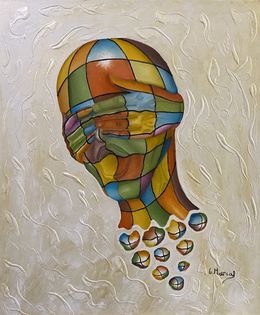
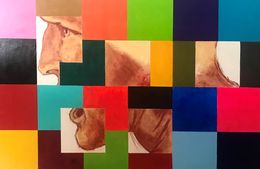
Siempre Leonardo / Always Leonardo
Luis Prada
Painting - 80 x 120 cm Painting - 31.5 x 47.2 inch
$2,857

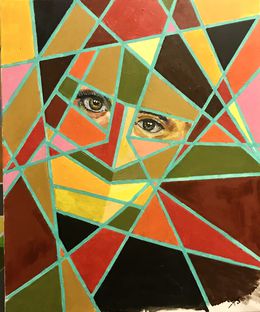
Noche y día / Night and Day
Luis Prada
Painting - 61 x 50 x 2 cm Painting - 24 x 19.7 x 0.8 inch
$1,905

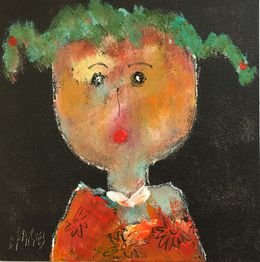
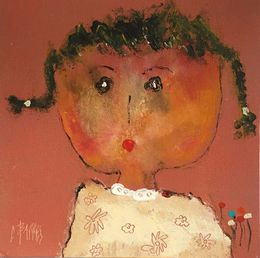
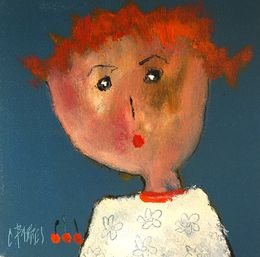
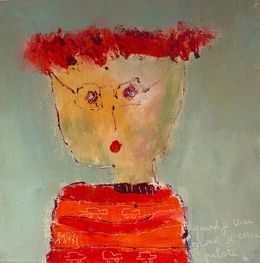
Philibert - Quand je serai grand je serai pilote
Christine Barrès
Painting - 20 x 20 x 0.3 cm Painting - 7.9 x 7.9 x 0.1 inch
$274


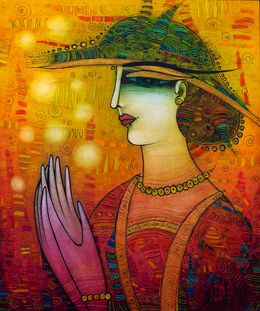
Petits miracles nous entourent
Albena Vatcheva
Painting - 55 x 46 x 3.5 cm Painting - 21.7 x 18.1 x 1.4 inch
$1,250

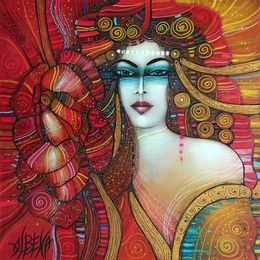
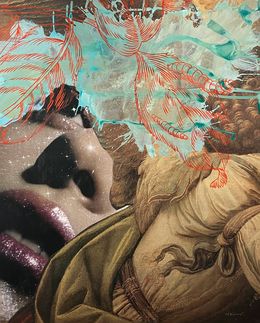
Eternal Recurrence #63, Photo collage with intervention by the artist
Natasha Zupan
Photography - 151.1 x 121.9 x 0.3 cm Photography - 59.5 x 48 x 0.1 inch
$6,000
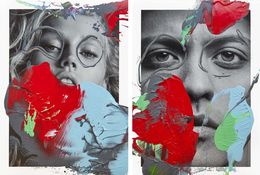
Muse and Bruno Mars, Portraits Intervened by the artists.
Hunter & Gatti
Photography - 29.5 x 43.4 x 0.3 cm Photography - 11.6 x 17.1 x 0.1 inch
$2,160
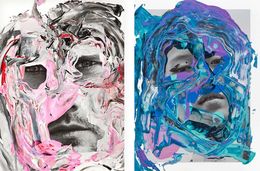
Skarsgård and Paris, Portraits Intervened by the artists.
Hunter & Gatti
Photography - 29.5 x 43.4 x 0.3 cm Photography - 11.6 x 17.1 x 0.1 inch
$2,160

Posdata Admiración and Apreciación, Diptych. From the Posdata series
Ivan Castiblanco
Painting - 47 x 133.6 x 0.3 cm Painting - 18.5 x 52.6 x 0.1 inch
$1,400
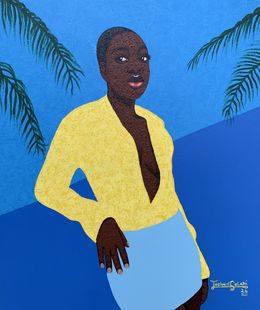
When I Choose To Be Myself 1 - 21st Century, Contemporary, Figurative, Nature
Joshua Salami
Painting - 91.4 x 76.2 x 2.5 cm Painting - 36 x 30 x 1 inch
$1,850

Catch Me While I Care - 21st Century, Contemporary, Figurative Portrait, Modern
Joshua Salami
Painting - 91.4 x 76.2 x 2.5 cm Painting - 36 x 30 x 1 inch
$1,850
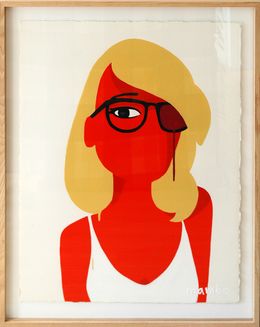
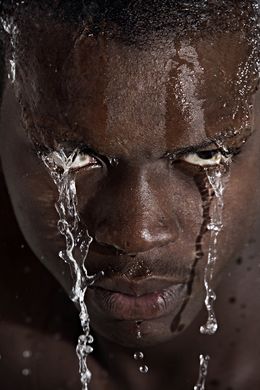
Jacques-Prince Okoko - Format M
Arnaud Baumann
Photography - 90 x 60 x 1 cm Photography - 35.4 x 23.6 x 0.4 inch
$1,667
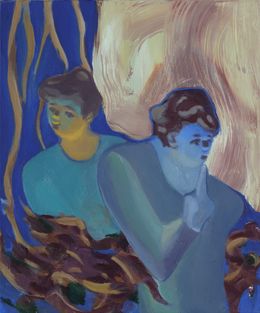
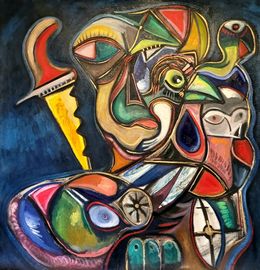
Chronos et la lame du destin
Timothy Archer
Painting - 100 x 100 x 5 cm Painting - 39.4 x 39.4 x 2 inch
$7,024

Fabrice Emaer et top modèle
Arnaud Baumann
Photography - 80 x 120 x 0.1 cm Photography - 31.5 x 47.2 x 0 inch
$3,453
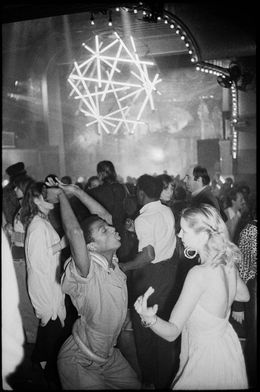
Barman danseur
Arnaud Baumann
Photography - 120 x 80 x 0.1 cm Photography - 47.2 x 31.5 x 0 inch
$3,453
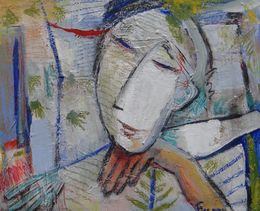
Printemps, début de journée dans le jardin
Philippe Fissore
Painting - 55 x 48 x 3 cm Painting - 21.7 x 18.9 x 1.2 inch
$774
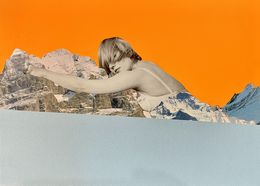
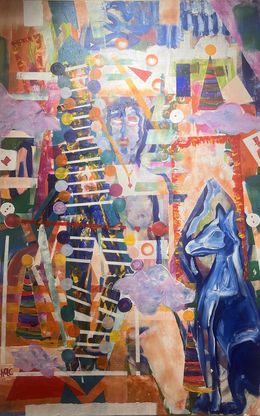
Théâtre kabuki japonais (1)
HelHolc
Painting - 116 x 76 x 2 cm Painting - 45.7 x 29.9 x 0.8 inch
$4,524
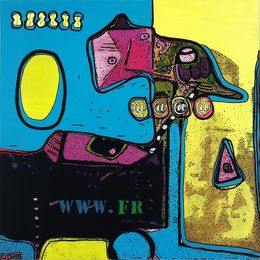
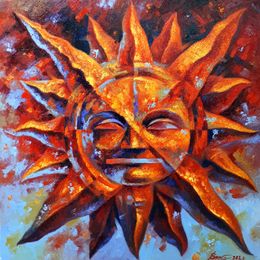
The sun shines brigh
Voichenko Sergiy
Painting - 70 x 70 x 2 cm Painting - 27.6 x 27.6 x 0.8 inch
$810
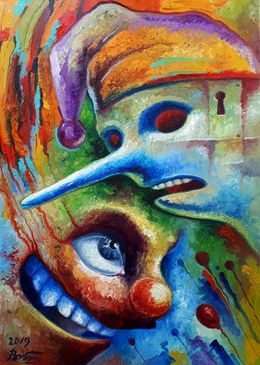
Pinocchio and the red-haired clown
Voichenko Sergiy
Painting - 70 x 50 x 2 cm Painting - 27.6 x 19.7 x 0.8 inch
$696
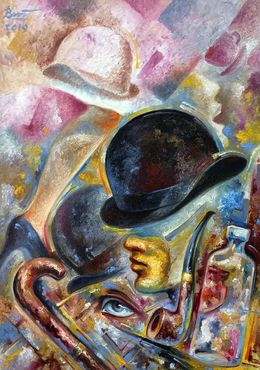
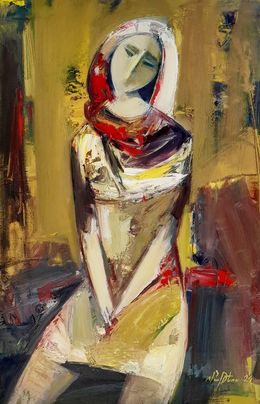
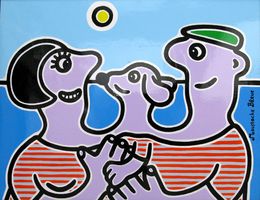

Bravo, super, dobre!
Francisco Montoya Cázarez
Painting - 30 x 40 x 0.1 cm Painting - 11.8 x 15.7 x 0 inch
$762
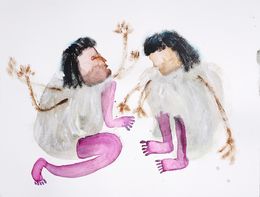
Argument 2
Francisco Montoya Cázarez
Painting - 30 x 40 x 0.1 cm Painting - 11.8 x 15.7 x 0 inch
$762
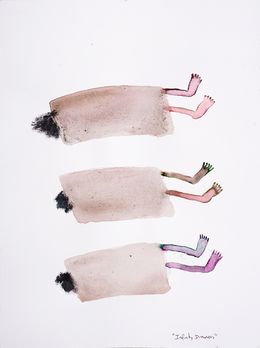
Infinity dreamers
Francisco Montoya Cázarez
Painting - 40 x 30 x 0.1 cm Painting - 15.7 x 11.8 x 0 inch
$762
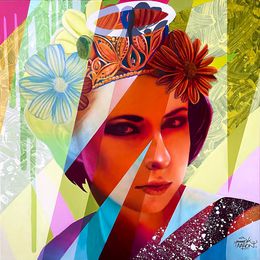

Portrait of a girl
Zakhar Shevchuk
Painting - 46 x 40 x 2 cm Painting - 18.1 x 15.7 x 0.8 inch
$1,250
